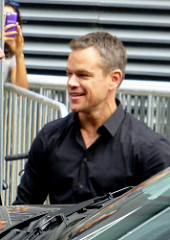Share This Article:
Return to Silver Screen Central Home page


Shailene Woodley is back for a third go-around in Allegiant
D+ Watching The Divergent Series: Allegiant brings to mind George Santayana’s endlessly paraphrased epigram, “Those who cannot remember the past are condemned to repeat it.” That advice applies perfectly to both the characters in Allegiant, who have not learned any lessons from the first two movies in the series, and the filmmakers, who seemingly haven’t learned any lessons from similar YA series such as The Hunger Games.
As Allegiant begins, rebels have overthrown the old order in what used to be Chicago and installed a new ruler, Evelyn (Naomi Watts), who’s pretty much as ruthless as her predecessors and prohibits people from leaving the city. Tris (Shailene Woodley), who led the insurgency, Evelyn’s son Four (Theo James), and a few friends scale the giant wall surrounding Chicago and escape into a desolate wasteland. They eventually find their way to the headquarters of the Bureau of Genetic Research, an agency that’s been monitoring events in Chicago. The Bureau’s leader David (Jeff Daniels) tells Tris that the problems in Chicago were caused by damaged genes, and that Tris, the only person in the world with perfect genes, is the key to rebuilding society.
The first two movies in this series, Divergent and Insurgent, weren’t great but at least had some decent action scenes and a somewhat intriguing vision of a particular dystopian future resulting from a master plan gone wrong. Allegiant, on the other hand, seems to have crafted its vision of the future straight from Josef Mengele’s lab notes, complete with blather about pure and damaged genes. Yes, the outside world blundered in setting up the faction system that ruled Chicago, but now they do it all over again. At least, Shailene Woodley gets to display some genuine emotion occasionally, and Miles Teller has fun as the duplicitous Peter, whose loyalties change from scene to scene. Otherwise, a talented cast is pretty much given little to do other than wait for things to come. And things definitely will come, since Allegiant covers merely the first half of the concluding novel in author Veronica Roth’s original YA trilogy. Once again, filmmakers try to milk a franchise by dividing one book into two movies with predictably bad results: a boring, talky, padded, unoriginal film. The Divergent series ran out of ideas in the last movie and is reduced to recycling them in Allegiant, and, except for one exciting sequence in which Tris and her group scale the wall to escape her former home, there’s very little action either. The series might redeem itself in the upcoming final movie, but Allegiant was doomed from the start.
Continue reading on The Divergent Series: Allegiant: Mini-review




Recent Comments